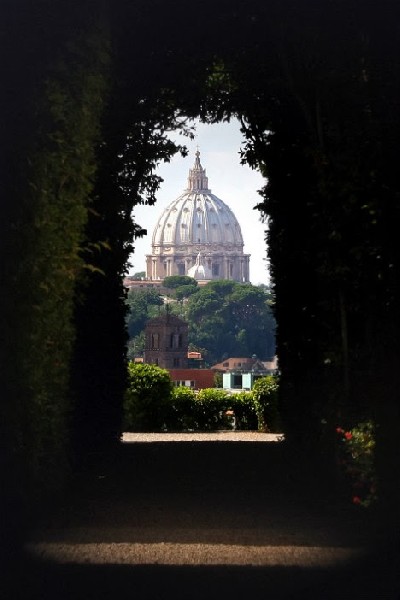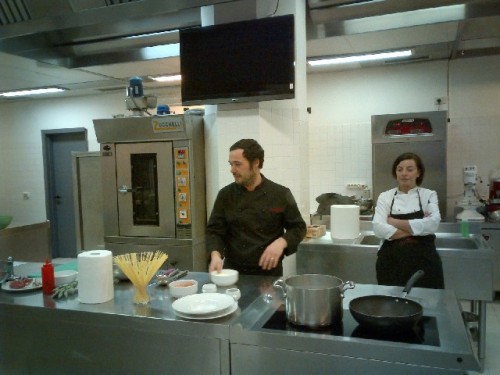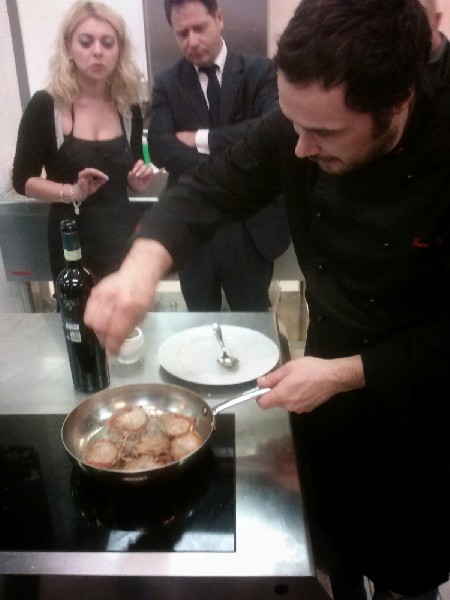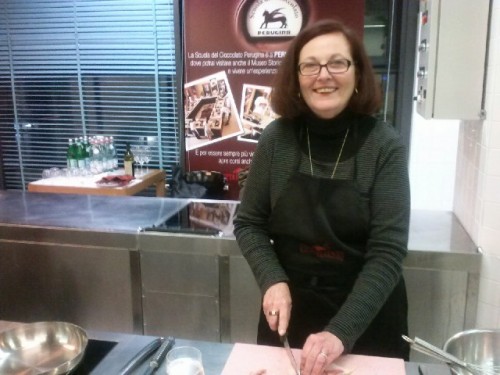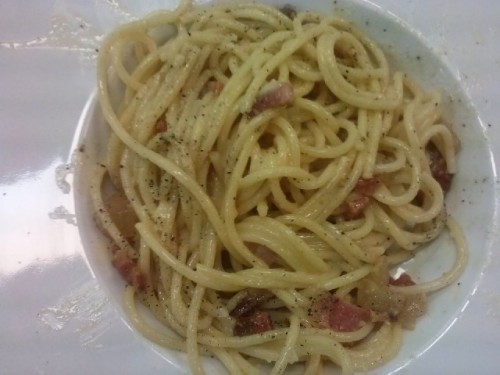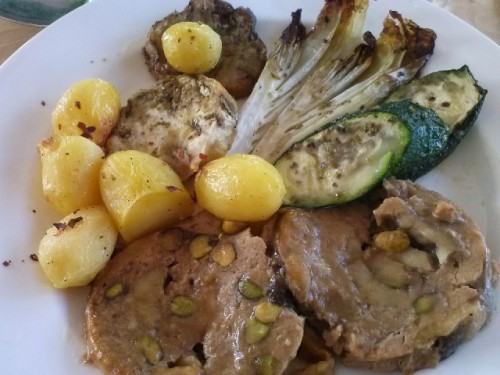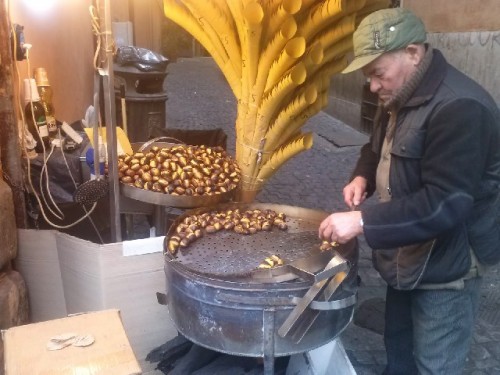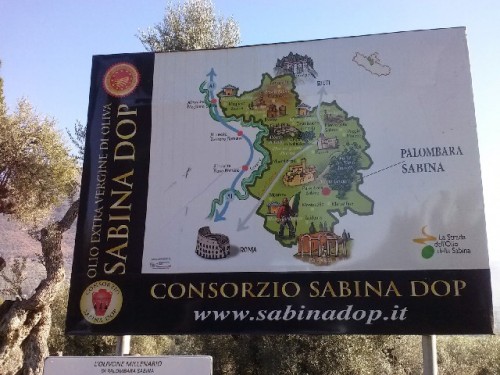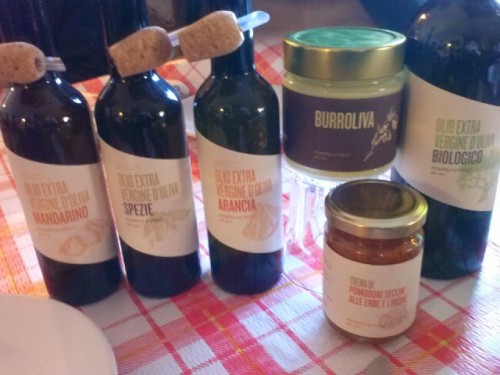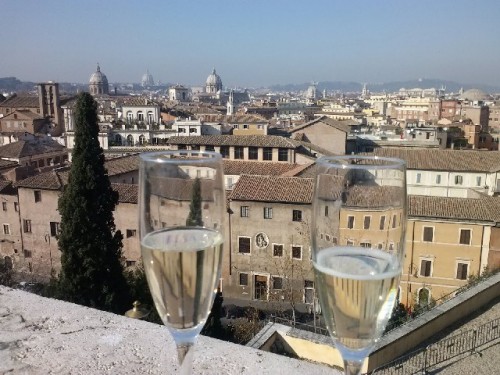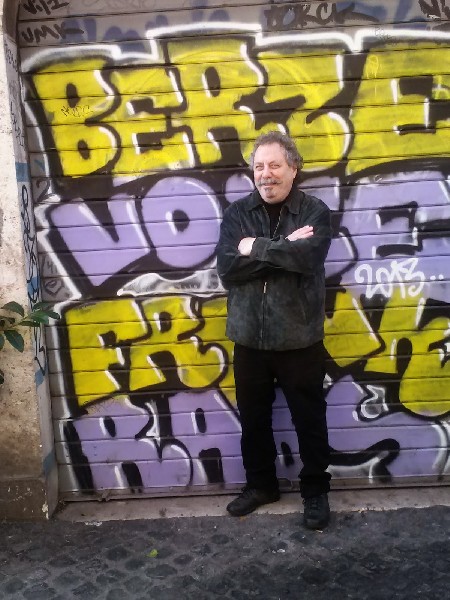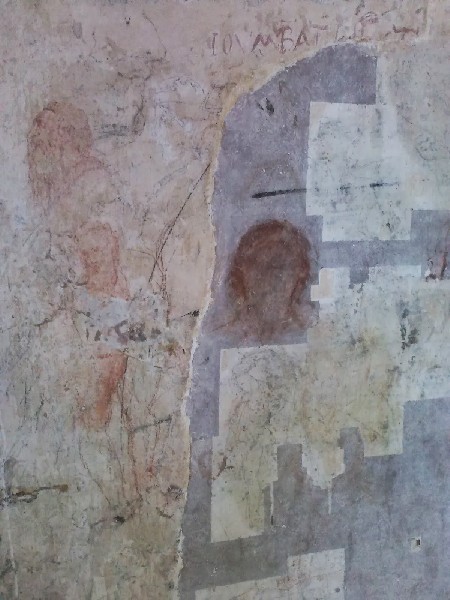A Roman Holiday
Mange Bene
By: Philip S. Kampe and Maria Reveley - Jul 26, 2014
There is a legend surrounding Rome’s Trevi Fountain. Toss a coin into the water and you’re ensured another visit to the eternal city.
Whether you stay in a Roman convent, monastery or other religious institution www.VaticanAccommodations.com, which makes a tourist feel like a pilgrim or if you stay in a secluded hotel, my choice being Hotel degliAranci ($75) , Via Barnaba Oriana 11, Tel# 39 06 8070202 www.hoteldegliaranci.com , off-the-beaten track in the lavish Parioli district, a short, downhill, mile and a half walk to the Villa Borghese, Rome is where you want to be.
Whatever you do, remember Rome has thousands of offbeat, historical, mind-bending nooks and crannies only the locals know. To find the secrets of Rome, PROMOROMA, a division of the Rome Chamber of Commerce, suggested a couple of tour guides, Antonio Rinaldini and Paolo Meschini, founders of Rome’s tour guide business with a catchy name, RoamAroundRome. www.RoamAroundRome.com
The ‘dynamic duo’ caters to clients with discerning needs who consider Rome an experience, not just a holiday. They know these small, hidden treasures that will make a visit to Rome unforgettable. Antonio and Paolo literally take you by the hand and guide you to the heart and soul of the Eternal City. ‘Walking is the preferred mode of transportation in Rome,' Antonio said. Walking through the center of Rome is relatively easy and it is the best way to see the city that has perpetual traffic problems.
To experience Rome like the Romans do, like I did, contact PromoRoma.
Thanks to the suggestion of President Giancarlo Cremonesi and his staff, specifically Consultant Manfredi Minutelli and Francesca Bianconi, from the PromoRoma division of the Rome Chamber of Commerce, we found two tour guides that are great 'Ambassadors for Rome'.
PromoRoma wants to help all tourists with their specific needs when visiting the Eternal City.
They are a great and necessary resource. Their contact information is: Via de’ Burro’ 147, 00186 Roma
Telephone 06 6795941 Via the internet: www.promoroma.com
THE JOURNEY BEGINS:
On a winter’s afternoon of bright sunshine and blue skies, everything moves quickly in and around Rome, especially Piazza Venezia. The piazza is the ‘Heart of Rome,' the central hub, a circus of sorts.
Renaissance Popes lived here.
From a balcony in Piazza Venezia, Mussolini lectured the crowds about fascism.
At the head of the piazza, the Romans built a huge, white marble memorial dedicated to King Victor Emmanuel II, who was the first ruler of a unified Italy. Foreigners say the statue resembles a ‘wedding cake’, while Romans refer to it as the ‘typewriter'.
My visits to Rome took place in two different seasons, the dead of winter and the overly crowded summer.
Each time I visited, I studied the ceilings at the Sistine Chapel, dreamed at the Coliseum and threw a coin into the Trevi Fountain.
If it was winter, I bought roasted chestnuts.
If it was summer, I ordered gelato.
Then it was back to the old grind, churches and landmarks.
But, eventually, peering up at one more landmark or squinting at yet another poorly lit Caravaggio, a stranger in Rome crosses another threshold.
Suddenly the most important thing in the Eternal City is not to find where La Dolce Vita was filmed or where Julius Caesar was stabbed, but, finding a place to sit still, rest sore feet, sip something sparkling, read an e-mail, eavesdrop or to just disappear in the shadows.
That is what piazzas are for.
Rome must have more of them than any other city. The imperial city knows no decline. It serves as the cradle of ancient art and architecture. Rome is the beating heart of Catholicism and La Dolce Vita.
Who hasn’t heard of the Coliseum, Vatican City, the Pantheon, the Sistine Chapel, the Roman Forum and the countless museums and piazzas that still dominate modern day Rome?
Its origin lies in the myth of Romulus and Remus, symbolized by the ‘She Wolf’.
The rise of the glorious Roman Empire gave birth to the clergy, the papacy and launched its architectural Baroque rebirth.
My favorite escape from Rome’s hustle and bustle, thanks to Antonio and Paolo’s recommendation, is Palazzo Caffarelli, where the outdoor terrace, Terrazza Caffarelli offers a striking view of the skyline of Rome, known for its vaulting domes.
Located above the steps of the Capitol, home of the Capitoline Museum, lies my oasis, a quiet, escape from frenetic Rome.
The outdoor terrace, with its stunning views, is also the home of Relais le Jardin, a restaurant whose food is as good as the view. This is where one can have a spiritual breather, while sipping Prosecco in one of the world’s most beautiful cities.
There are many faces of Rome.
Let’s take a look at a different Rome, from a different perspective. Rome has an important cinematic soul where world-class movie directors create cinematic memories.
Take, for example, Audrey Hepburn’s classic scene, where Ms. Hepburn is riding on the back of a Vespa motor scooter, in the classic movie, ‘Roman Holiday' (1953).
The image has been in our brain and our soul for over sixty years.
Isn’t it a must for all tourists to walk down the same streets and sit at the same cafes that the movie ‘Roman Holiday’ depicted?
Rome is a living film set, where the Coliseum comes alive and is a symbol of the ancient world, while ‘To Rome With Love’ (Woody Allen) , gives relevance to the present day.
The locals live next to history, a fact few Americans can relate to.
When I say Romans live inside their monuments, I am not using a metaphor, it literally is the truth.
The Italians are very spontaneous. They ask, ‘Who you are?’ versus ‘What do you do?’
The Romans live in history, but, view the world in the present.
THE COOKING LESSON:
When you think of Italy, especially Rome, you think of food.
Haven’t all visiting tourists had the desire to visit Harry’s Bar in Venice, where Ernest Hemingway frequented? Or haven’t we wanted to take a cooking class at the famous Citta del Gusto, the cooking school of Gambero Rosso?
Well, we had the opportunity to experience a cooking class at the esteemed Citta del Gusto.
One of the dishes we made was the Roman version of ’Spaghetti alla Carbonara’, an old
standby and one of my favorite dishes.
The Roman recipe differs from other Carbonara recipes we have come to know and love, as no cream is used in this recipe.
INGREDIENTS:
12 ounces of spaghetti
6 ounces of Guanciale or Pancetta if you can’t find Guanciale
4 egg yolks
3 ounces of freshly grated Pecorino Romano cheese
Black pepper to taste
Spaghetti alla Carbonara
THE PROCESS:
Cut the Guanciale (pork cheek) into strips and cook until the ends turn up.
In a bowl, beat the egg yolks with 2/3 of the Pecorino Romano and black pepper.
Cook the spaghetti in boiling water until three minutes before al dente.
Drain the pasta and put it into the pan with the Guanciale.
Cook the pasta until creamy by adding a little of the pasta water.
Remove the pan from the heat and pour the spaghetti into the bowl with the eggs.
Mix well and serve with black pepper and Pecorino Romano.
Serves 4
Cooking Carbonara with future Chef Maria Reveley
Not only did we cook ‘Spaghetti alla Carbonara’, but, we were given a cooking kit upon arrival from ‘Bravo Buonissimo’, which contained all the ingredients necessary to cook Latium’s most famous dish, Bucatini All’Amatriciana’.
According to the easy to cook guidebook, all of the necessary ingredients are included in the ‘chic’ looking package.
The Eco-friendly package contained:
16 ounces Bucatini pasta
15 ounce jar of peeled San Marzano tomatoes with juice
6 ounces Guanciale from Amatrice
4 ounces Pecorino Romano from Latium
6 ounces Sabina DOP Extra Virgin Olive Oil
1 ounce Peperoncini from Calabrese
750ml bottle of Latium White Wine
With high quality Italian ingredients, the end result will always be ‘Authentic’.
Bucatini All’Amatriciana is a typical dish from the central part of the Italian peninsula, the heart of the Gran Sasso National Park, where the mountains separate the Tyrrhenian Sea from the Adriatic Sea.
Bucatini All’Amatriciana is considered one of Italy’s most famous and irresistible pasta dishes.
Bravo Buonissimo www.bravobuonissimo. not just a culinary experience, it is also a cultural discovery which digs deeply into Italian traditions, from the north to the south of the country, characterized by each region's unique food farming heritage. These culinary food packages were designed specifically to take a slice of Italy into your home.
THE RECIPE
Boil 4 quarts of water.
While the water is boiling, add three tablespoons of extra virgin olive oil to a sauté pan.
Add a small amount of peperoncino to the hot oil.
Add 6 ounces of Guanciale to oil and cook until they are crispy and curl.
Add 4 ounces of white wine to the dish.
As soon as the white wine has evaporated add a 15 ounce can of peeled San Marzano tomatoes to the pan.
Cook over medium heat for 10 minutes, stirring slightly.
Take off the heat when done.
Add the 16 ounce package of Bucatini to the boiling water.
Add an ounce of sea salt to the pasta water.
Cook for ten minutes until al dente, stirring every three to four minutes.
Grate the soft 4 ounces of Pecorino Romano while the pasta is cooking.
Heat the tomato sauce to medium.
When the Bucatini have finished cooking, drain and add to the pan with the tomato sauce.
Keep stirring for a minute and take the pan off of the heat and add the grated Pecorino Romano directly into the frying pan, stirring carefully.
It is now ready to serve with your chilled white wine.
Serves 4
WINE:
Maybe there is only one winery in the city of Rome, Gelso della Valchetta, for good reason.
Located a scant twenty minutes north of city center, it makes makes tremendous, award-winning wines that are the passion of winemakers and owners Mapi and Marco Caldani.
Under the supervision of enologist Graziana Grassini, the first planting in 1997 has blossomed into a sought after wine that has roots worldwide. The wines are bottled under the Il Gelso and Il Lilium labels and blend the Merlot (75%) and Cabernet Sauvignon (25%) varietals.
To visit Azienda Agricola Gelso della Valchetta, call 39 3489014364 or visit their website at: www.gelsodellavalchetta.com
RECOMMENDED RESTAURANTS IN ROME:
When in Rome, there is one thing you don't have to worry about.
Finding a place to eat.
You can choose from family-run trattorias and pizzerias to elegant restaurants. The food is simple and rich in flavor. The food from Rome has its roots in the past.
As a simple guide, with the help of Manfredi Minutelli, we have assembled a short list of 'Ten Restaurants in Rome' that are worth visiting:
1)Lo Scopettaro in Testaccio
2)Harry’s Bar on Via Vittorio Veneto150
3)Al Pompiere on Via Di S. Maria De’ Calderari 38
4)La Carrette at Via Madonna dei Monte 95
5)Osteria della Gensola in Trastevere Molto
6)Gina in Parioli Settembrini
7)La Nuova Fiorentina in Prati Lo Scopettaro
8)Felice in Testaccio Roscioli
9)Il Drappo near Piazza Farnese
10) Restaurant Les Etoiles Rooftop at the Hotel Atlante Garden in Vatican City
WHEN IN ROME, DO AS THE ROMANS DO:
After interviewing several Roman residents, I compiled a list of ten places the locals like to visit.
Many are off the beaten tourist path.
1)Ponte Sisto is a footbridge in Rome’s historic center, spanning the river Tiber. It connects Via del Pettinari in the Rione of Regola to Piazza Trilussa in Trastevere. Construction was ordered by Pope Sixtus IV using architect Baccio Pontelli in 1493.
2) Piazza Trilussa in Trastevere takes the name of the poet, Carlo Alberto Salustri (1873-1950), who was an Italian dialect poet, better known for his pen name, an anagram of his surname.
3) Via Appia Antica. Marzia recalls the summer afternoons, when a Roman wind blows gently, as she walked on the 3000 year old stones, she could hear the voicesof the people who lived and died there.
4) The Parco degli Acquedotti is a public park in Rome, part of the Appian Way Regional Park. It is named after the aqueducts.
5) Via di Ripetta is a historic street in the historic center of Rome that links the Piazza del Popolo to Via del Clementino, not far from the Pantheon.
6) Basilica di Santo Stefano Rotondo (St. Stephen In The Round on the Celian Hill) is the National Church in Rome of Hungary.
7) Tempietto del Bramante a San Pietro in Montorio al Gianicola is a church that includes a courtyard as a small commemorative tomb built by Donato Bramante.
8) Villa Medici al Pincio is a mannerist villa and an architectural complex with a garden contiguous with the large Borghese gardens on Pincian Hill.
9) Porta San Sebastiano is a modern name for the ancient Porta Appia, a gate in the Aurelian Wall of Rome.
10) Mausoleo di Santa Costanza was built in the 4th century for Constanza, son of Constantine.
MY FAVORITE ROMAN VIEW:
The most dramatic view in Rome is from the Keyhole at the Knights of Malta Gate on Aventine Hill. If you peek through the keyhole on the piazza designed by Piranesi in 1765, you will see a garden path that ends with bushes that perfectly frame the dome of St. Peter’s Basilica in the distance.
What you are peering through are the gardens of the Villa del Priorato di Malta, one of Rome’s properties of the famous Knights of Malta ( I Cavalieri di Malta), one of the last surviving orders of knights dating back to the Crusades.
The 'Keyhole'
THE FOUR-DAY ROMAN ITINERARY (Promoroma’s Educational Tour led by RoamAroundRome)
As you can see, Rome has so much to see and often, as tourists, we never have enough time to visit what we consider important.
Thanks to PromoRoma's direction, the four days I spent in Rome, following their guidance, made this trip the 'Most Memorable' vacation in my life.
I didn't feel hurried, at all, but, I felt energetic and fulfilled each day.
I am sharing the itinerary with you, so, you can use it as a guide if and when you visit the Eternal City.
Day 1:
Arrival in Rome and transfer to Hotel degli Aranci.
Lunch at Terrazza Caffarelli.
Tour of Domus Romane at Palazzo Valentini.
Transfer to winery Gelso della Valchetta.
Winery Tour and wine tasting with homemade appetizers.
Dinner at Harry’s Bar
Day 2:
Departure from hotel to Polombara to Sabina to visit Azienda Agricola Pompili.
Tour and extra virgin olive oil tasting.
Lunch at La Muraccia fishing camp restaurant.
Return to Rome and stroll from Piazza Barberini to Villa Borghese along Via Veneto, the ‘La Dolce Vita’ street.
Guided tour of Villa Borghese.
Transfer from Galleria Borghese to the cooking show at Citta del Gusto (Gambero Rosso).
Enjoy wine and homemade appetizers before you join Chef Luca for a cooking lesson.
Dine on the food that you prepared at Citta del Gusto
Day 3:
Transfer from hotel to Villa Farnesina alla Lungara.
Villa Farnesina guided tour and walking tour of Trastevere and the Jewish ghetto.
Lunch at Al Pompiere for typical Jewish roman cuisine.
Transfer to Coliseum and San Clemente Basilica for a guided tour.
Shopping in Rome then back to the hotel.
Transfer to La Carrette pizzeria for dinner.
Lo Scopettaro Restaurant.
Day 4:
Walking tour of Baroque Rome.
Lunch at Lo Scopettaro restaurant in Testaccio.
Three hour car tour of Rome ending at the ‘Keyhole.’
Back to the hotel
Transfer from hotel to Bancovino wine bar for wine tasting and dinner
Bancovino Wine Bar is located in the Prati district and is home of gourmet food, salami and the best selection of wines that pair perfectly with their bistro food. Via Pietro Borsieri, 27. Telephone 0687673864
www.bancovino.com
Ciao. See you in Rome!
Reposted courtesy of Philip.Kampe@TheWineHub.com Photographs by Maria Reveley.

